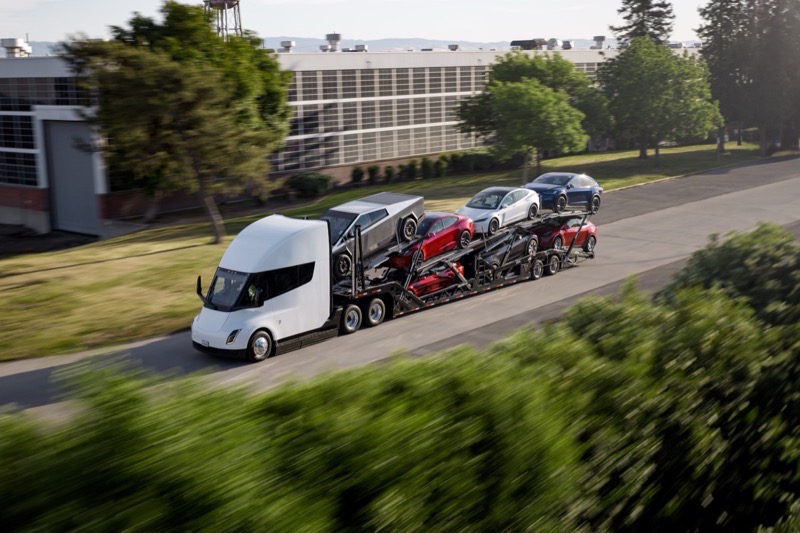Tesla Updates U.S. Website: Clarifies $7,500 Federal EV Tax Credit Eligibility
Tesla has made a significant update to its U.S. website regarding the $7,500 federal EV tax credit. Previously, buyers were required to take delivery of their vehicle by September 30, 2025, in order to qualify for the tax credit. However, the new clarification states that buyers simply need to place an order and enter into a binding purchase agreement before the deadline.
This means that as long as a buyer orders their Tesla by September 30 and makes a payment, they can take delivery of their vehicle weeks or even months later and still be eligible for the $7,500 incentive. This update from Tesla aligns with recent guidance from the IRS, which specified that eligibility for the tax credit is tied to the purchase contract date rather than the actual delivery date.
While the $7,500 EV tax credit is still set to expire at the end of September, this new flexibility could potentially give Tesla a boost in Q4 deliveries and provide buyers with more breathing room. Customers no longer need to rush to find a vehicle available for immediate delivery; they can order a factory build or wait for their preferred configuration to arrive without losing access to the tax credit.
It’s important to note that the tax credit is only applied once the car is officially “placed in service,” meaning when the buyer takes delivery and the dealer submits a time-of-sale report. However, as long as a purchase contract is signed before September 30, eligibility for the tax credit is secured.
For Tesla, this clarification could help alleviate delivery bottlenecks and sustain strong order momentum into Q4, particularly as the company manages high demand for the Model 3 and Model Y in the U.S. For customers, it removes the pressure of having to quickly choose from available inventory, making it easier to secure the federal incentive without having to compromise.
If you’ve been considering purchasing a new Tesla, now is the opportune time to place your order. While the $7,500 federal EV tax credit is still set to expire after September 30, locking in your eligibility before the deadline ensures that you won’t miss out on this incentive. Click here to order your Tesla today and secure the $7,500 federal EV tax credit before it expires.
Other Articles in the Tesla Category:
1. Tesla Owner Drives 8,400 Miles Around Australia with FSD (Supervised)
2. Tesla Referral Code Now Saves $1,000 on Model S/X and Cybertruck in the U.S.
3. Tesla Model S/X Owners with FSD Can Add Luxe Package for $2,000
These updates from Tesla showcase the company’s commitment to providing transparency and flexibility for buyers, while also highlighting the innovative advancements in electric vehicle technology. The world of technology is constantly evolving, with new innovations being introduced every day. One of the most recent advancements in technology is the development of artificial intelligence (AI). AI is a branch of computer science that focuses on creating machines that can perform tasks that typically require human intelligence, such as visual perception, speech recognition, decision-making, and language translation.
AI has the potential to revolutionize industries across the board, from healthcare to finance to transportation. In healthcare, AI can be used to analyze medical images, diagnose diseases, and even assist in surgery. In finance, AI can help detect fraudulent activity, predict stock market trends, and personalize investment strategies. In transportation, AI can improve traffic flow, optimize logistics, and enhance the safety of autonomous vehicles.
One of the key benefits of AI is its ability to process and analyze vast amounts of data at a speed that far surpasses human capabilities. This allows AI systems to identify patterns and trends that would be impossible for humans to detect, leading to more accurate predictions and better decision-making.
However, with great power comes great responsibility. There are ethical considerations that must be taken into account when developing and deploying AI systems. For example, there are concerns about bias in AI algorithms, as they can reflect and amplify the biases present in the data they are trained on. This can lead to discriminatory outcomes, such as in hiring practices or criminal justice decisions.
Another concern is the potential impact of AI on the job market. As AI systems become more advanced, there is a fear that they will replace human workers in many industries, leading to widespread job loss. This has implications for income inequality and social stability, as well as the need for retraining and reskilling programs to help displaced workers transition to new roles.
Despite these challenges, the potential benefits of AI are vast. By harnessing the power of AI, we can improve efficiency, increase productivity, and solve complex problems that were previously thought to be insurmountable. It is essential that we approach the development and deployment of AI with caution and foresight, ensuring that it is used in a responsible and ethical manner to benefit society as a whole.

